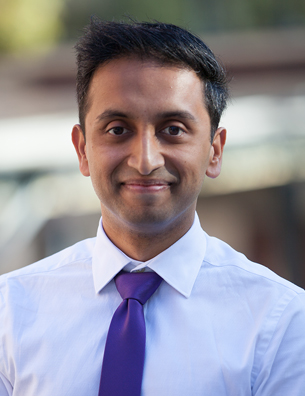
Dr Chamara Basnayake
Multidisciplinary clinics provide better outcomes for patients with functional gastrointestinal disorders (FGD) compared to gastroenterologist-only care, Australian research shows.
The findings come from a trial involving 144 patients conducted by researchers at St Vincent’s Hospital and Melbourne University to compare the effectiveness of a multidisciplinary clinic – involving gastroenterologists, dieticians, psychiatrists and physiotherapists – with usual gastroenterology specialist-only care.
The study randomised patients with FGD attending a hospital gastroenterology clinic in 2017 and 2018 to usual care or to multidisciplinary care, to asses any impact on outcomes for symptoms, specific functional disorders, psychological state, quality of life, and cost of care for the treatment.
Published in Lancet Gastroenterology and Hepatology, the study found that 82 of 98 (84%) of patients in the multidisciplinary care group achieved global improvement in IBS symptoms such as stool frequency, pain and bloating at nine months, compared with 26 of 46 (57%) of patients in the standard care group.
Of the patients with functional dyspepsia, a 50% reduction in the Nepean Dyspepsia Index was noted in three (11%) of 11 patients in the standard-care group and in 13 (46%) of 28 in the multidisciplinary-care group (p=0·47).
Patients in the multidisciplinary group also expressed greater improvement in psychological wellbeing, with a 40% decrease in depression, compared with a 9% decrease for those in standard care. After treatment, the median Hospital Anxiety and Depression Scale (HADS) scores were higher in the standard-care group than in the multidisciplinary-care group (13 vs 10; p=0·096) . Quality of life was also better in patients receiving multidisciplinary care with a lower median EQ-5D-5L quality of life visual analogue scale (70 vs 75, p=0·0087) compared to standard gastroenterologist-only care.
Although the average cost per patient was significantly higher in the multidisciplinary-care group ($A2,485 per patient compared with $A2,421, researchers found patients benefited from treatment more, with costs of $A2,549 per patient with improved symptoms compared with $A3,136 in the standard clinic.
Patients in the multidisciplinary group were also less likely to see their GP for GI symptoms and were less likely to undergo tests outside of hospital during follow-up, suggesting broad cost savings. Patients in the multidisciplinary clinic were less likely to take time off from work (26% vs 37% of patients in standard care).
Study investigator Dr Chamara Basnayake, a gastroenterologist at St Vincent’s Hospital, said the findings will not surprise gastroenterologists who are already well aware that functional gastrointestinal disorders are complex to treat and often need input from allied health specialities such as dieticians, psychologists or physiotherapies.
The issue is that gastroenterologists often don’t have enough opportunity or encouragement to collaborate within the health system, he said in a commentary article in Pursuit.
“Gastroenterologists know about these other therapies, but the logistics of organising a more holistic approach is very difficult, especially in a public hospital setting where the funding through Medicare is inadequate for a multi-disciplinary clinic,” said Dr Basnayake.
“As a consequence, patients are often just sent down the road to the dietician or the psychologist – but there is no real collaboration between them and the gastroenterologist. The patient is simply sent off on a “do it yourself” journey.”
He noted that more than half of the patients in the trial had attempted dietary therapy previously, and 60% were classified as anxious, highlighting further need for an integrated approach to treatment.
“One of the easiest ways would be for the Federal government to specifically fund multi-disciplinary approaches under Medicare, rather than just funding consultations with a specific specialist,” suggested Dr Basnayake.
“We don’t want to be working in silos anymore, where we separately look after our own speciality or skill, instead multi-disciplinary collaboration which can produce better outcomes for our patients.”